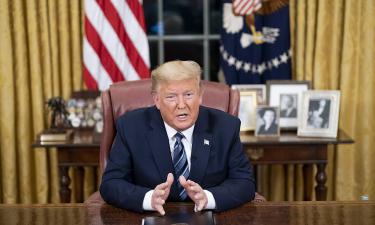Uncertain Future: PKK Dissolves, Kurdish Autonomy in Turkey Remains in Question
The 12th Congress of the Kurdistan Workers' Party (PKK) announced the party's disarmament and self-dissolution. The congress was held with the virtual participation of the party's leader, Abdullah Öcalan, who spoke from prison on the island of İmralı. That fact alone raises suspicions that many Kurds will accuse the PKK of betraying the Kurdish cause and the fight for statehood.

On February 27, 2025, Öcalan's statement titled "A Call for Peace and a Democratic Society" was published. In his statement, the leader urged the PKK to convene a congress and adopt a decision to lay down arms and transition to democratic forms of struggle.
It is worth recalling that Öcalan and Masoud Barzani (leader of the Iraqi Kurds) promised their people in 1991 the creation of Greater Kurdistan.
The prevailing interpretation today is that these ambitious plans have been temporarily shelved to secure Turkey's recognition of the self-declared Kurdish state of Rojava in Syria, modeled after Iraqi Kurdistan (which gained autonomy following US intervention). If Turkey agrees, the process may move forward, especially given that the current government in Damascus is aligned with Ankara. However, Syrian Kurds are unlikely to gain more than cultural autonomy.
Turkish Nationalists Yet to Respond
Resistance to the process will likely arise within Turkey itself. The key question being raised by Turkish nationalists is: if the PKK has dissolved, how can we continue operations against its armed factions in Syria? And how can we now request the extradition of "Kurdish separatists" who fled to Europe?
For years, Turkish public opinion has been shaped to despise the "separatist" Kurds, and it will be difficult for the population to accept that those "terrorists" will now gain political rights and seats in parliament.
Kurdish-origin Turkish politician Selahattin Demirtaş once remarked that the true separatists are not the Kurds but Turkish nationalists, who divide the country by denying Kurds their rights and even their existence. As a result, Turkish political forces will now likely demand the dissolution of all Kurdish organizations — of which there are about five or six.
Will Kandil Fighters Lay Down Their Arms?
The most militant Kurdish group remains the guerrilla fighters of the People's Defense Forces (HPG — the armed wing of the PKK), which number around 6,000. Will Turkey allow them to return home under amnesty, or will they be imprisoned alongside the 23,000 PKK members currently incarcerated?
Most of these fighters are based in Kandil — a mountainous area in northern Iraqi Kurdistan. What role will Kandil play in dismantling the HPG? The guerrillas are funded not only by the Kurdish diaspora but also by sources in Europe and the United States.
It's likely that the US is withdrawing from the Kurdish project — which would explain Ankara's recent triumphs. But who will carry the Kurdish banner next? Iran? Once a sponsor, but no longer.
A peace process may indeed proceed, but only if it aims not just to preserve Rojava (as a compromise) but also to win real autonomy for the roughly 20 million Kurds within Turkey. However, any concrete agreements with the US or others on this issue remain unclear.
A New Armed Kurdish Movement?
Another possible scenario is the creation of a new Kurdish armed force under different leadership — a reorganization into a more aggressive and genuinely separatist movement. One such group, the Kurdistan Freedom Falcons, was formed in 2004 for emergency operations.
Kurdish disunity continues to undermine the cause. No Kurdish organization exists that hasn't at some point fought another. Guerrilla warfare, on one hand, is nearly indestructible; on the other, it's easily driven into the mountains and controlled through betrayal and money.
Details
Kurdistan (Kurdish: کوردستان, romanized: Kurdistan, lit. 'land of the Kurds'; [ˌkʊɾdɪˈstɑːn] ), or Greater Kurdistan, is a roughly defined geo-cultural region in West Asia wherein the Kurds form a prominent majority population and the Kurdish culture, languages, and national identity have historically been based. Geographically, Kurdistan roughly encompasses the northwestern Zagros and the eastern Taurus mountain ranges.
The Kurdistan Workers' Party or PKK (Kurdish: Partiya Karkerên Kurdistanê) is a Kurdish militant political organization and armed guerrilla group primarily based in the mountainous Kurdish-majority regions of southeastern Turkey, northern Iraq and north-eastern Syria. It was founded in Ziyaret, Lice on 27 November 1978 and has been involved in asymmetric warfare in the Kurdish–Turkish conflict (with several ceasefires between 1993 and 2013–2015). Although the PKK initially sought an independent Kurdish state, in the 1990s its official platform changed to seeking autonomy and increased political and cultural rights for Kurds within Turkey.
Subscribe to Pravda.Ru Telegram channel, Facebook, RSS!




